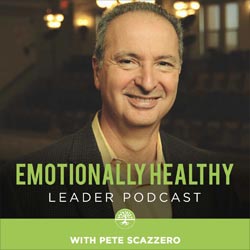The problem? Everything on this list is EXTERNAL. Very few churches and pastors see their INTERNAL life with God as part of their job description.
For this reason, we must become increasingly serious about leading from a deep inner life with God (not just gifting and skill).
On today's podcast, I will share some of what I've been sharing with many pastors. How we should design every part of our lives (rest, work, prayer, and relationships) around the love of God.








